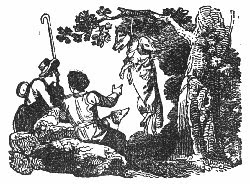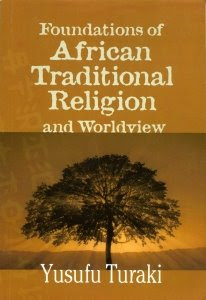Now we turn to the second truth. We must recognize opposing messages.
John continues his instructions in this passage by contrasting two spirits. "By this you know the Spirit of God: every spirit that confesses that Jesus Christ has come in the flesh is from God, and every spirit that does not confess Jesus is not from God. This is the spirit of the antichrist, which you heard was coming and now is in the world already" (vv. 2-3).
 So then, how do we know that a message of teaching comes from God? By conducting a doctrinal test. We turn to what God has already revealed in Scripture to test what someone’s saying. We always test a claim with the fundamental truths of Scripture. And these essentials have been summarized throughout Christian history in the creeds: the Apostles' Creed, the Nicene Creed, the Athanasian Creed, and the Chalcedonian Creed. All true teaching will agree with the Word of God and with these historic Christian creeds.
So then, how do we know that a message of teaching comes from God? By conducting a doctrinal test. We turn to what God has already revealed in Scripture to test what someone’s saying. We always test a claim with the fundamental truths of Scripture. And these essentials have been summarized throughout Christian history in the creeds: the Apostles' Creed, the Nicene Creed, the Athanasian Creed, and the Chalcedonian Creed. All true teaching will agree with the Word of God and with these historic Christian creeds.In this section of Scripture, John’s specific doctrinal test was the full humanity of Jesus Christ. Was Christ fully human? Did He have a physical body? The believers that John was writing to were struggling with the protognostics. They divided the human Jesus from the divine Christ. For the protognostics, the spirit of Christ filled the human Jesus at His baptism but left Him prior to His crucifixion and death. However, our struggle today is usually in the opposite direction. People don’t have a problem believing that Jesus was fully human. Their problem is believing that He is also fully God. Nevertheless, Scripture teaches us both: Jesus is fully human and fully God!
Since Jesus Christ is the center of our faith, it is normally with regard to His person and His work where you’ll hear falsehoods and error taught. Beware! Test what you hear.
These verses reveal two opposing spirits: the Spirit of God and the Spirit of Antichrist. Those who deny the fundamentals of our faith are not from God; they are in the spirit of the antichrist. Now I know that when we think of the antichrist, we think of a future person from the book of Revelation. But look at how antichrist is described here: “which you heard was coming and now is in the world already.” The focus is not on a person, but on a spirit that is very much here, now. In a sense, all of those who deny or corrupt the Christian faith are antichrists!
These are very strong words. Do you really believe them? Would you call the Jehovah’s Witnesses antichrists? They deny that Jesus is one with the Father. Would you call Oneness Pentecostals antichrists? They deny the Trinity, arguing that Jesus was not a distinct person from the Father but is simply a different mode of the Father. Our hesitation shows how comfortable we are in this world and how unimportant our beliefs actually are to us.
Regardless, the Apostle John's contrasts are not over. He moves from contrasting two spirits to contrasting two peoples: the people of God and the people of the world. "Little children, you are from God and have overcome them, for he who is in you is greater than he who is in the world. They are from the world; therefore they speak from the world, and the world listens to them" (vv. 4-5).
Let us never forget how we have become the people of God. God has created for Himself a people through Jesus Christ. We have been reconciled to our Father through the work of His Son. And like we saw last week, John again uses tender words when addressing believers as "little children." He lovingly encourages us and emphasizes that we have overcome. By being in Christ, we overcome the spirit of antichrist. But we overcome antichrists not by our strength or our wisdom, but because of the greatness and power of God. His Spirit, the Holy Spirit, is in us!
What about the people of the world? The spirit of antichrist comes from this fallen world, and false teachers use worldly wisdom and speech to fool others into believing falsehoods. But notice: it works! The world recognizes its own people and listens to their message, which reflects their own beliefs. Therefore, we should not be surprised when those in the world do not listen to God’s message. Apart from the Holy Spirit, those in the world are only too willing to continue believing lies.
What we find in this fallen world is the great antithesis. "We are from God. Whoever knows God listens to us; whoever is not from God does not listen to us. By this we know the Spirit of truth and the spirit of error" (v. 6).
There is a foundational divide between God's apostles and the world's prophets. These are two opposites with no middle ground! There is no neutrality in this world. There is either the spirit of God or the spirit of antichrist. You either follow the teaching of the apostles or the teaching of the world. In the Africa Bible Commentary, Kenyan theologian Samuel Ngewa writes, “John reminds the believers that there are only two spheres – the sphere of God and the sphere of the world. Anyone who claims to speak or act for God must draw his inspiration from one of these two spheres” (1534).
The sphere of God is found in the teaching of the apostles and prophets as recorded in Scripture. This is the spirit of truth. We are a people that believe in absolute truth, or as Francis Schaeffer called it, “true truth.” Nevertheless, the sphere of the world opposes true truth. False teachers come from this sphere. As a result, we are to differentiate between truth and error because God has revealed His truth to us in the Word of God.
With this in mind, are you living your life understanding that we as Christians are at war with the world? The world has its enemies, including some that attempt to infiltrate God’s people to do great harm and to overcome us. Thankfully, we are not left to ourselves to defend ourselves against them. By growing in our faith in Christ and trusting in His revelation, we have all that we need to overcome our enemies. We have His strength and His power.
At the same time, don't forget that the body of Christ is facing this threat globally. There are antichrists around the world today, including Africa. Let us not forget our international brothers and sisters in Christ as they face this daunting challenge, helping them to recognize the errors and falsehoods surrounding them. We all must recognize opposing messages.
Next Monday, we'll conclude examining this passage by thinking through what the Apostle John calls us to do.

 Hick's understanding of the nature of man is explained with the language of a wheel. She supports this concept by referring to James 3:6, noting that in the phrase "course of nature," the Greek word for course means "wheel."
Hick's understanding of the nature of man is explained with the language of a wheel. She supports this concept by referring to James 3:6, noting that in the phrase "course of nature," the Greek word for course means "wheel." Jesus Himself warned us all about this danger in Matthew 7:15-23. He begins by telling us, "Beware of false prophets, who come to you in sheep’s clothing but inwardly are ravenous wolves" (v. 15). False prophets and teachers are not usually easy to identify. They appear as one of us, sincere in their devotion to the Lord.
Jesus Himself warned us all about this danger in Matthew 7:15-23. He begins by telling us, "Beware of false prophets, who come to you in sheep’s clothing but inwardly are ravenous wolves" (v. 15). False prophets and teachers are not usually easy to identify. They appear as one of us, sincere in their devotion to the Lord. In her writings, Hicks assumes a very high view of the Bible—it is the Word of God. "The excellency of the Scriptures is that they were given by the Inspiration of God; therefore, they are His Word. Not only does the Bible contain God's Word, but it is God's Word."
In her writings, Hicks assumes a very high view of the Bible—it is the Word of God. "The excellency of the Scriptures is that they were given by the Inspiration of God; therefore, they are His Word. Not only does the Bible contain God's Word, but it is God's Word." But before you think that the Montanists were limited to the ignorant and the poor people of this time, one of the most important and respected early church fathers eventually joined this group. Who was he? The North African theologian Tertullian. From developing the doctrine of the Trinity to writing
But before you think that the Montanists were limited to the ignorant and the poor people of this time, one of the most important and respected early church fathers eventually joined this group. Who was he? The North African theologian Tertullian. From developing the doctrine of the Trinity to writing  Even if CGC is exaggerating how rapidly they are growing, this new religious movement has made tremendous inroads around the globe (especially in Mexico and India). They even have affiliate churches in half a dozen African countries and shortwave broadcasts to many more throughout the continent. Founded by Reverend Berniece R. Hicks, the movement is a self-described "fundamentalist, pentecostal Christian group."
Even if CGC is exaggerating how rapidly they are growing, this new religious movement has made tremendous inroads around the globe (especially in Mexico and India). They even have affiliate churches in half a dozen African countries and shortwave broadcasts to many more throughout the continent. Founded by Reverend Berniece R. Hicks, the movement is a self-described "fundamentalist, pentecostal Christian group."


